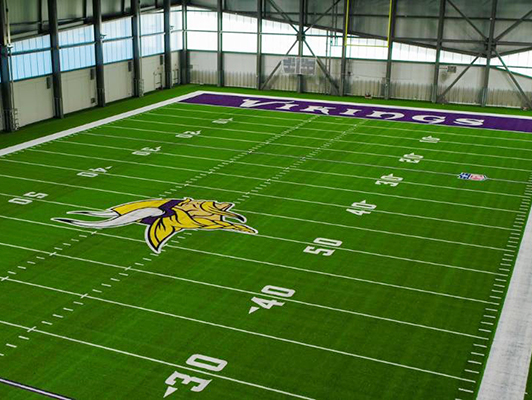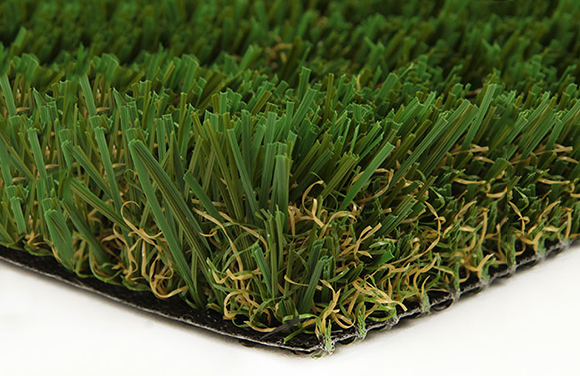Upgrade Your Outdoor Space with Arizona Artificial Turf for a Evergreen Green Look
Upgrade Your Outdoor Space with Arizona Artificial Turf for a Evergreen Green Look
Blog Article
Delve Into the Environmental Perks of Opting for Synthetic Grass Solutions
The fostering of synthetic grass services presents an engaging opportunity to attend to pressing ecological difficulties. By significantly lowering water use and minimizing the application of dangerous chemicals, these options not only advertise lasting landscape design yet also protect regional ecosystems. Furthermore, the reduced carbon impact related to decreased upkeep tasks adds to an extra sustainable strategy to land administration. The ramifications of these advantages prolong beyond plain conservation efforts, raising inquiries regarding their long-lasting impact on habitat preservation and overall ecological balance. Exploring these dimensions exposes a complex interplay worth considering.
Water Conservation Benefits
One of the most considerable benefits of artificial lawn is its capability to preserve water. In contrast, man-made lawn does not require watering, substantially minimizing the total need for water sources.
By removing the need for regular watering, synthetic grass adds to sustainable landscape methods and helps reduce the ecological impact of excessive water consumption. The preservation of water extends to the reduction of overflow, which can lead to dirt erosion and waterway contamination.
Furthermore, the installation of synthetic grass permits towns and homeowners to designate water resources a lot more successfully, focusing on necessary uses such as drinking water and agriculture. The shift in the direction of synthetic grass not only promotes accountable water use however likewise aligns with more comprehensive environmental goals focused on preserving all-natural sources.
As communities increasingly focus on sustainability, the water conservation benefits of synthetic grass present a compelling case for its adoption in industrial and property landscape design jobs.
Minimized Chemical Use
The change to synthetic lawn significantly lowers the reliance on chemical therapies frequently made use of in natural grass upkeep. Typical turf monitoring normally entails the application of fertilizers, chemicals, and herbicides to promote growth and control insects. These chemicals can position risks to human health and wellness, local wild animals, and the setting, adding to dirt and water contamination.
In comparison, fabricated grass removes the demand for these hazardous substances. By decreasing the launch of artificial substances right into the environment, artificial turf promotes healthier soil and water systems.
Moreover, the absence of chemical runoff connected with synthetic grass installments helps safeguard neighborhood rivers from pollution, supporting marine life and keeping biodiversity. Phoenix turf companies. As neighborhoods significantly focus on lasting methods, going with synthetic grass offers a practical service that aligns with environmental preservation goals. Via this shift, building proprietors can enjoy lush environment-friendly rooms without jeopardizing eco-friendly health and wellness, leading the way for a much more sustainable future
Lower Carbon Impact

Additionally, the installation of fabricated grass can lead to considerable water preservation. All-natural next page yards need substantial quantities of water for irrigation, which not just contributes to the carbon footprint linked with water extraction and therapy yet likewise stress neighborhood water resources. In contrast, synthetic grass needs minimal maintenance, requiring no watering, thus dramatically minimizing water use and its connected power costs.
In addition, the longevity of artificial turf adds to its reduced carbon effect. With a lifespan of up to 15 years or more, the need for frequent substitutes is diminished, leading to much less waste and reduced power consumption in manufacturing and getting rid of standard lawn options. Generally, synthetic lawn presents a sustainable option for eco conscious landscape design.
Habitat Preservation
Habitat preservation is a vital factor to consider in the dispute over landscape design choices, specifically when comparing fabricated lawn to natural turf. All-natural yard lawns commonly call for substantial maintenance, consisting of the usage of herbicides, pesticides, and plant foods, which can negatively affect regional communities. These chemicals can seep right into the dirt and rivers, damaging native plants and fauna and interfering with local habitats.
Synthetic lawn gets rid of the demand for unsafe chemicals, thus protecting nearby wild animals and keeping the honesty of bordering ecosystems. The setup of fabricated turf can lead to the conversion of former grass locations right into even more biodiverse landscapes, such as pollinator gardens or native plant areas, which can support local wildlife.
Inevitably, the change to man-made lawn not just preserves water and lowers upkeep initiatives yet additionally promotes an extra unified partnership in between human tasks and the natural surroundings, advertising environment preservation at the same time.
Long-Term Sustainability
Long-lasting sustainability is an important consider examining the benefits of artificial grass over standard turf yards. Among the most considerable benefits of man-made grass visit is its toughness; it can last up to 15-20 years with minimal maintenance, whereas all-natural yard needs frequent reseeding and replacement. This durability decreases the need for constant resources, such as water, fertilizers, and pesticides, which are essential for maintaining a healthy and balanced yard lawn.
In addition, synthetic grass adds to a reduction in carbon discharges connected with yard care devices. Conventional yards commonly call for gas-powered mowers, leaners, and blowers, every one of which add to air contamination. Phoenix turf companies. In comparison, synthetic turf gets rid of the demand for such devices, advertising a cleaner atmosphere
Furthermore, the production of synthetic grass significantly makes use of recycled materials, boosting its sustainability account. As producers take on green practices, the ecological footprint of fabricated turf remains to lessen.

Final Thought
The adoption of artificial lawn options offers significant environmental advantages, consisting of considerable water preservation, decreased reliance on unsafe chemicals, and a reduced carbon footprint. Artificial grass aids in preserving natural habitats by reducing land disruption and advertising lasting sustainability through the usage of long lasting materials. Jointly, these aspects emphasize the possibility of synthetic grass to contribute favorably to ecological health and use a viable choice to conventional landscaping methods in a progressively resource-conscious globe.
In contrast, fabricated lawn does not need watering, dramatically decreasing the total need for water resources. By lessening the launch of synthetic substances into the community, fabricated grass advertises healthier dirt and water systems.
In addition, the setup of synthetic turf can result in significant water conservation. In contrast, artificial grass requires very little maintenance, requiring no watering, consequently significantly lowering water from this source use and its associated energy expenses.

Report this page